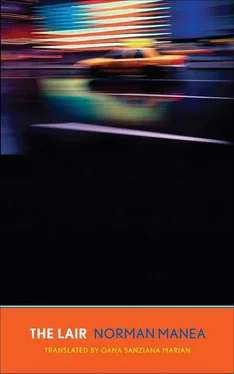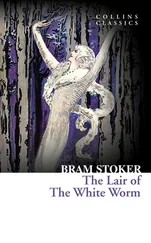That’s what Peeperkorn called the booze that enlivened him: bread.
Bread, Renzchen, but not baked bread, of that we have a sufficiency, in all shapes and sizes. Not baked, but distilled, my angel. The bread of God, clear as crystal, my little Nickname, that we may be regaled … in light of our duty, our holy obligation — for example, the debt of honor incumbent upon me to turn with a most cordial heart to you, so small but full of character — a gin, my love!
The wide-breasted stranger with the tall brow, dingy eyes, and the strong head enveloped in the white flames of his hair was an imposing man. Seized at alternately by chills and by fever. An imposing force, a magnificent incoherence.
Life is short, whereas our ability to meet its challenges is but — those are facts, my child. Laws. In-ex-or-a-bilities.
Telegraphic, fractured missives, confused understandings. A personality! With the greatness of a tribal chief, his countenance and dingy gaze subdue his audience. The large hand of a captain, a clutched fist pounding the table.
Whatever is simple! Whatever is holy! Fine, you understand me. A bottle of wine, a steaming dish of eggs, pure grain spirits — let us first measure up to and enjoy such things before we — absolutely, my dear sir. Settled.
An offbeat burlesque. Powerlessness, just like strength, devastated him.
It may be a sin — and a token of our inadequacies — to indulge in refined tastes without having given the simple, natural gifts of life, the great and holy gifts, their due … the defeat of feeling in the face of life, that is the inadequacy for which there is no pardon, no pity, no honor … If is the end, the despair of hell itself, doomsday …
The face and silhouette of Peter Ga  par, whom he hadn’t seen for over twenty years, and not often even before that, remained obscure. Gora remembered only that he didn’t resemble Pieter Peeperkorn. This he remembered for certain.
par, whom he hadn’t seen for over twenty years, and not often even before that, remained obscure. Gora remembered only that he didn’t resemble Pieter Peeperkorn. This he remembered for certain.
There was another motivation behind that nickname. A story that Peter Ga  par wrote, Mynheer, caused some ripples among the socialist literati. Slaves forced to praise their slavery are happily receptive even to the most furtive winks of complicity, or a fraction of mockery. Was there some secret gunpowder hidden within the story that spurred Peter Ga
par wrote, Mynheer, caused some ripples among the socialist literati. Slaves forced to praise their slavery are happily receptive even to the most furtive winks of complicity, or a fraction of mockery. Was there some secret gunpowder hidden within the story that spurred Peter Ga  par’s notoriety among the socialist underground? It was just a story! Published in a provincial journal, what’s more. Forty years after the celebrated novel of the celebrated Thomas of Lübeck! Was there some codified allusion that escaped the censor’s eye? Such oddities did happen, quickly to be forgotten. Not long after the publication, the author was branded with the name of his protagonist. Not even a name, a formal address-become-name. Mister, Monsieur, Monsignor. Mynheer! The nickname circulated in the literary cafe, and then beyond it. The name fueled the rumors that surrounded Peter Ga
par’s notoriety among the socialist underground? It was just a story! Published in a provincial journal, what’s more. Forty years after the celebrated novel of the celebrated Thomas of Lübeck! Was there some codified allusion that escaped the censor’s eye? Such oddities did happen, quickly to be forgotten. Not long after the publication, the author was branded with the name of his protagonist. Not even a name, a formal address-become-name. Mister, Monsieur, Monsignor. Mynheer! The nickname circulated in the literary cafe, and then beyond it. The name fueled the rumors that surrounded Peter Ga  par; the author never published anything again, but the halo wouldn’t be shattered. In the country that invented rumors, it was rumored that Peter had authored other literary charades, unknown to anyone. It was whispered that he worked, in secret, on a masterpiece. Rumors were the garlicky black bread of the dictatorship.
par; the author never published anything again, but the halo wouldn’t be shattered. In the country that invented rumors, it was rumored that Peter had authored other literary charades, unknown to anyone. It was whispered that he worked, in secret, on a masterpiece. Rumors were the garlicky black bread of the dictatorship.
Nothing but a petty technician in a petty, socialist enterprise, Ga  par contributed to cultural journals with short, ironic texts, eschewing the wooden, official language. Casual little columns on theater and art exhibitions, even on the races, or philately. He could be spotted at shows and gallery openings and cocktail parties. Em-barrassed (but not embarrassed enough) by his phantom and persistent prestige, obsessed with the spies that teemed all around.
par contributed to cultural journals with short, ironic texts, eschewing the wooden, official language. Casual little columns on theater and art exhibitions, even on the races, or philately. He could be spotted at shows and gallery openings and cocktail parties. Em-barrassed (but not embarrassed enough) by his phantom and persistent prestige, obsessed with the spies that teemed all around.
Tall, lean, and ill at ease as a result of a lanky body, as if he’d borrowed it for too long and forgotten to return it.
Shaved head with a black moustache and goatee, he resembled a hussar employed by a musical theater producer. His intense, black gaze under his thick eyebrows of crude oil. Small hands, smooth brow. Straight nose, in defiance of his heredity.
The way he looked, his name could have been Hungarian or German. It was rumored, however, that he might be circumcised. So he was. The rumor proved sovereign, in keeping with tradition. Some even alleged that his biography contained certain dramatic details, though the facts were vague, just like those concerning his supposed masterpiece. He seemed like any other, though maybe he wasn’t. His comradely casualness, left over from when he played hockey and basketball and football in youth leagues, inspired sympathy.
His post-Habsburgian-Transylvanian education conflicted with the Balkan and Parisian mannerisms characteristic of metropolitan Bucharest. Could Transylvania be considered occidental? Mynheer Peeperkorn also conferred on his successor a second, convenient ennoblement, “The Dutchman.” His company took to calling him by that nickname; you could hear them yell loudly, “Hey, Dutchman!”
Ga  par’s text defied the distorted “debates” of the Authority, the great words and the humanist catchphrases.
par’s text defied the distorted “debates” of the Authority, the great words and the humanist catchphrases.
Incoherence was subversive. Is that what Ga  par was suggesting? He appeared sometimes, donning Peeperkorn’s felt hat, and, after a few shots of vodka, recited his namesake’s lines, with an outstretched, imploring hand.
par was suggesting? He appeared sometimes, donning Peeperkorn’s felt hat, and, after a few shots of vodka, recited his namesake’s lines, with an outstretched, imploring hand.
We’re cheating, my good men. This wind, this tender, fresh fragrance … presentiments and memories. Liquidated, my good men. I’ll stop. Li-qui-da-ted. The summit, a black and rotating point and a grand bird of prey. An eagle of the great solitudes. The bird of Jupiter, the lion of the air.
Was the story Mynheer, somehow, a codified plea in favor of the New World? A self-made man, the international Peeperkorn! The King of Coffee, a Dutchman with a residence in Java, near his lover with the Caucasian eyes. A plea for freedom and for the Statue on the Hudson? Liberty, vitality!
How well can you know a person lost among the consumers of illusions, along the meridian where the Orient meets the Occident? Professor Gora would not have had the courage to respond. Pieter Peeperkorn brought the page to life, while Gora waited in vain; Ga  par would not appear.
par would not appear.
In the book the giant Dutchman commits suicide, injecting himself with animal venom and plant poisons. The tropical fevers drain his power. “The failure to perceive life intensely is a cosmic catastrophe,” the letter says. Shame before God.
Gora hoped to understand, gradually, what he couldn’t understand previously. Could Mynheer Ga  par become in America what everyone had said he was, after all?
par become in America what everyone had said he was, after all?
Some years back, Peter, who was then a senior in high school, suddenly found himself on a visit to relatives in the capital.
Tall, pale, furrowed, and burdened with a mission disproportionately heavy for his age. He had only a few hours to go before the return train. He’d traveled overnight from the western corner of the country, for this bizarre family reunion, to relate what had happened to his father, or to warn his relatives about the consequences that could befall them.
Читать дальше

 par, whom he hadn’t seen for over twenty years, and not often even before that, remained obscure. Gora remembered only that he didn’t resemble Pieter Peeperkorn. This he remembered for certain.
par, whom he hadn’t seen for over twenty years, and not often even before that, remained obscure. Gora remembered only that he didn’t resemble Pieter Peeperkorn. This he remembered for certain.










